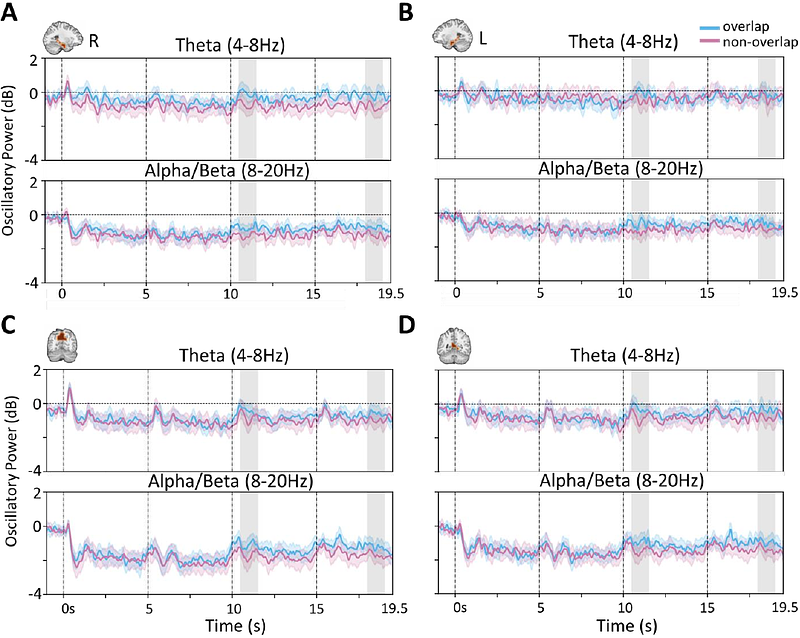Theta and alpha oscillations in human hippocampus and medial parietal cortex support the formation of location-based representations

Theta and alpha oscillations in human hippocampus and medial parietal cortex support the formation of location-based representations
Satish, A.; Keller, V.; Raza, S.; Fitzpatrick, S.; Horner, A. J.
AbstractOur ability to navigate in a new environment depends on learning new locations. Mental representations of locations are quickly accessible during navigation and allow us to know where we are regardless of our current viewpoint. Recent fMRI research has shown that these location-based representations emerge in the retrosplenial cortex and parahippocampal gyrus, regions theorised to be critically involved in spatial navigation. However, little is currently known about the oscillatory dynamics that support the formation of location-based representations. We used MEG to investigate region-specific oscillatory activity related to forming location-based representations. Participants viewed videos showing that two perceptually distinct scenes (180 degrees apart) belonged to the same location. This 'overlap' video allowed participants to bind the two distinct scenes together into a more coherent location-based representation. Participants also viewed control 'non-overlap' videos where two distinct scenes from two different locations were shown, where no location-based representation could be formed. In a post-video behavioural task, participants successfully matched the two viewpoints shown in the overlap videos, but not the non-overlap videos, indicating they successfully learned the locations in the overlap condition. Comparing oscillatory activity between the overlap and non-overlap videos, we found greater theta and alpha/beta power during the overlap relative to non-overlap videos, specifically at time-points when we expected scene integration to occur. These oscillations localised to regions in the medial parietal cortex (precuneus and retrosplenial cortex) and the medial temporal lobe, including the hippocampus. Therefore, we find that theta and alpha/beta oscillations in the hippocampus and medial parietal cortex are involved in the formation of location-based representations.